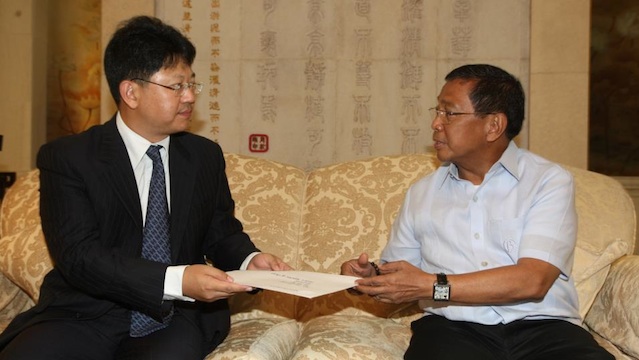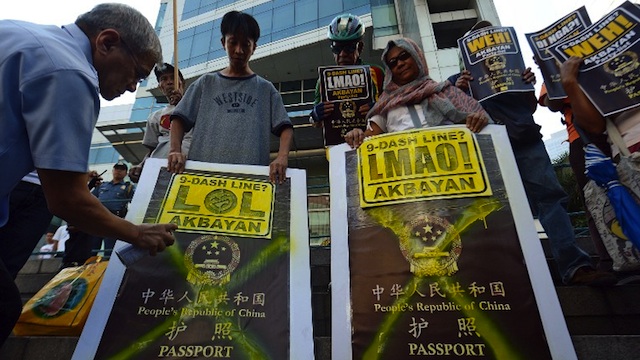SUMMARY
This is AI generated summarization, which may have errors. For context, always refer to the full article.

MANILA, Philippines – Vice President Jejomar Binay asked China to clarify its intention to board foreign vessels “intruding” in areas claimed by Beijing in the South China Sea (West Philippine Sea).
“What does this policy of boarding and inspecting all ships in the area really mean? It appears to be contrary to the concept of free maritime navigation,” Binay said in a statement released on Tuesday, December 4.
The new law enacted by the Chinese province of Hainan — to take effect in January 2013 — empowers authorities to board, inspect, detain, confiscate, immobilize and expel “foreigners” caught sailing in Chinese-claimed waters in the South China Sea.
Sovereignty over part of that territory is disputed by the Philippines, including Scarborough Shoal, but Beijing insists on asserting their claim over virtually the whole region under the controversial 9-Dash line map.
PH queries China on Hainan law
The Philippines has asked China to clarify reports Beijing ordered its navy to board and interdict foreign ships entering its claimed territories in the South China Sea, an official said Monday, December 3.
The Department of Foreign Affairs said a diplomatic note seeking “clarifications” was sent on Saturday following reports appearing in the Chinese media, department spokesman Raul Hernandez told reporters.
“We would like China to immediately clarify its reported plans to interdict ships that enter what it considers its territory in the South China Sea,” said the note, posted on the department’s website.
“If media reports are accurate, this planned action by China is… a direct threat to the entire international community (…) It violates not only the maritime domain of coastal states established under the United Nations Convention on the Law of the Sea, but also impedes the fundamental freedom of navigation and lawful commerce,” Hernandez added.

New passport policy should not deter tourism
After officially protesting via a verbale note sent to the Chinese Embassy in Manila, the Philippines started implementing on Monday the new policy of not stamping passports issued by China and instead printing both entry and exit visas on separate application forms.
All Chinese travel documents, not only the ones featuring the 9-Dash line map, are subject to the directive approved after Beijing’s latest move to assert its sovereignty over the South China Sea.
Despite the passport row, the government insists Chinese nationals are still welcometo the Philippines and hopes the new policy will not deter tourists from visiting the country.
Hernandez said on Tuesday that the immigration requirement is a “simple procedure” that will not result in any “delay” for Chinese visitors: “There is no delay. It’s just a piece of paper.”
“Chinese nationals who want to visit the Philippines are very welcome. We are promoting people-to-people exchange. We have been trying to emphasize that the other aspects of our bilateral relations should move forward and that’s why we don’t think this will affect tourism as we are not stopping anyone from coming in,” he explained.
Vietnam is also refusing to stamp Chinese passports, while India is printing special visas embossed with its own map. – Rappler.com, with reports from Agence France-Presse
Add a comment
How does this make you feel?





There are no comments yet. Add your comment to start the conversation.